Aivar: The making of North Macedonia’s best kept secret
Hannah Twiggs travels to a small village in the heart of the Balkans in the middle of the night to learn the secret recipe for one of her favourite condiments

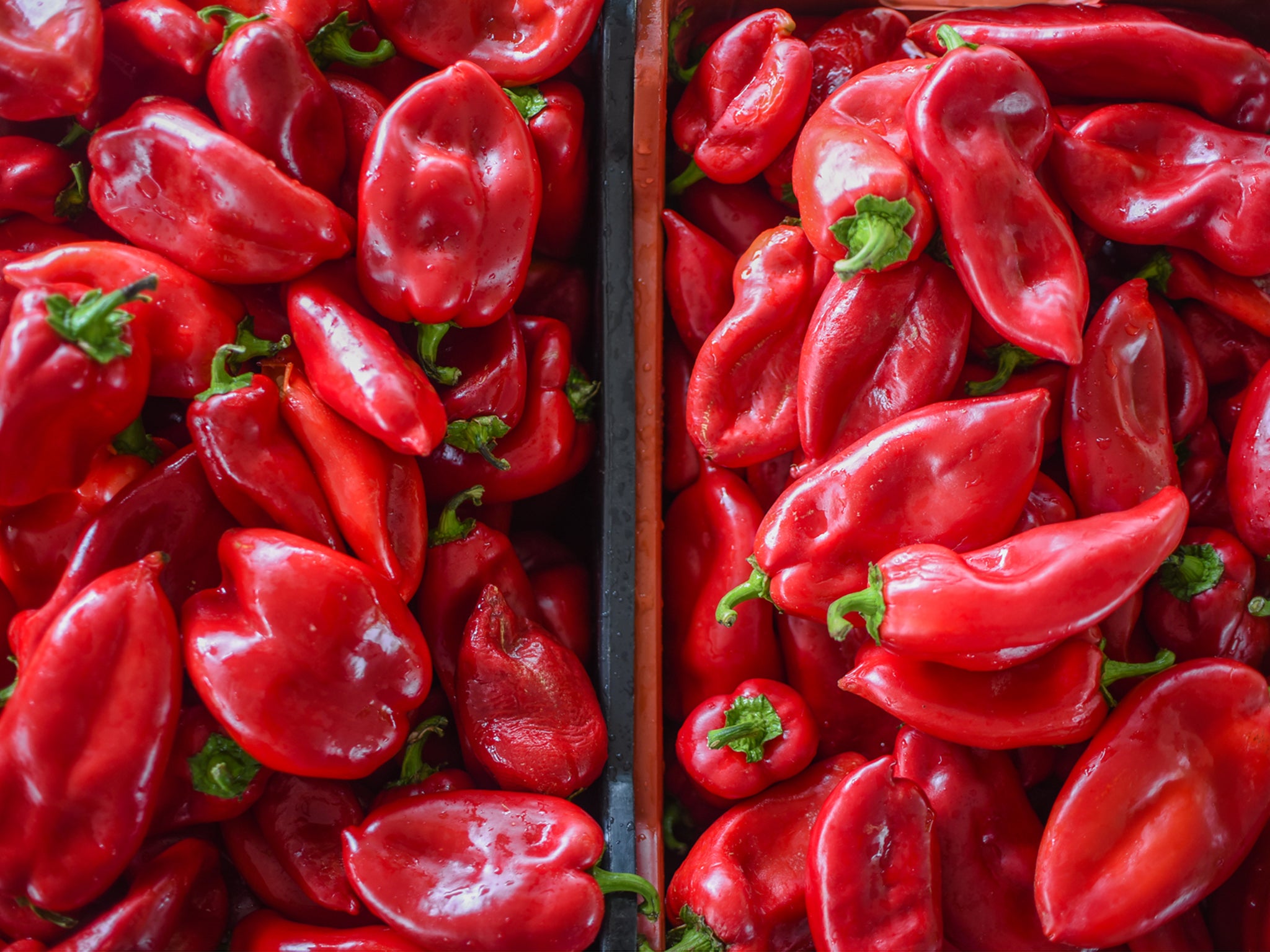
Your support helps us to tell the story
From reproductive rights to climate change to Big Tech, The Independent is on the ground when the story is developing. Whether it's investigating the financials of Elon Musk's pro-Trump PAC or producing our latest documentary, 'The A Word', which shines a light on the American women fighting for reproductive rights, we know how important it is to parse out the facts from the messaging.
At such a critical moment in US history, we need reporters on the ground. Your donation allows us to keep sending journalists to speak to both sides of the story.
The Independent is trusted by Americans across the entire political spectrum. And unlike many other quality news outlets, we choose not to lock Americans out of our reporting and analysis with paywalls. We believe quality journalism should be available to everyone, paid for by those who can afford it.
Your support makes all the difference.North Macedonia, the land of X, Y and Z. No, pedants, I haven’t left that intentionally blank. I’ve arrived at Skopje International Airport in the middle of the night and to keep myself awake on the drive to our accommodation, I’m contemplating the start of this piece. I’m ashamed to say that I know embarrassingly little about this part of the world, and even less about its cuisine. The only food fact I do know about North Macedonia, and it’s a relatively niche one, is that one of the most famous chefs in the world, Rene Redzepi, the culinary genius behind Copenhagen’s Noma, is half-Macedonian. In fact, he cites his childhood spent foraging with his family in the countryside around Tetovo in the northwest as the inspiration behind his famously experimental menu. There’s a whole Anthony Bourdain: Parts Unknown episode about it. I digress…
I am here for aivar, or ajvar as it’s known in North Macedonia. Back in England, you can find the chargrilled red pepper spread in bulbous, bell-shaped jars down the condiments aisle. It comes in various flavours and levels of spice, and often appears alongside other miscellaneous mezze like grilled aubergine or courgette, stuffed whole peppers, fruit and vegetable jams, and an assortment of olives. Those are just some of the products sold in the UK by North Macedonia-based brand Pelagonia. But co-founder Philip Evans, a Brit and my driver, tour guide and aivar aficionado for this trip, is surprised to learn that I’m already quite familiar with the antipasti - we often have it spread on little crostinis at Christmas, or smothered over anything and everything at summer barbecues.
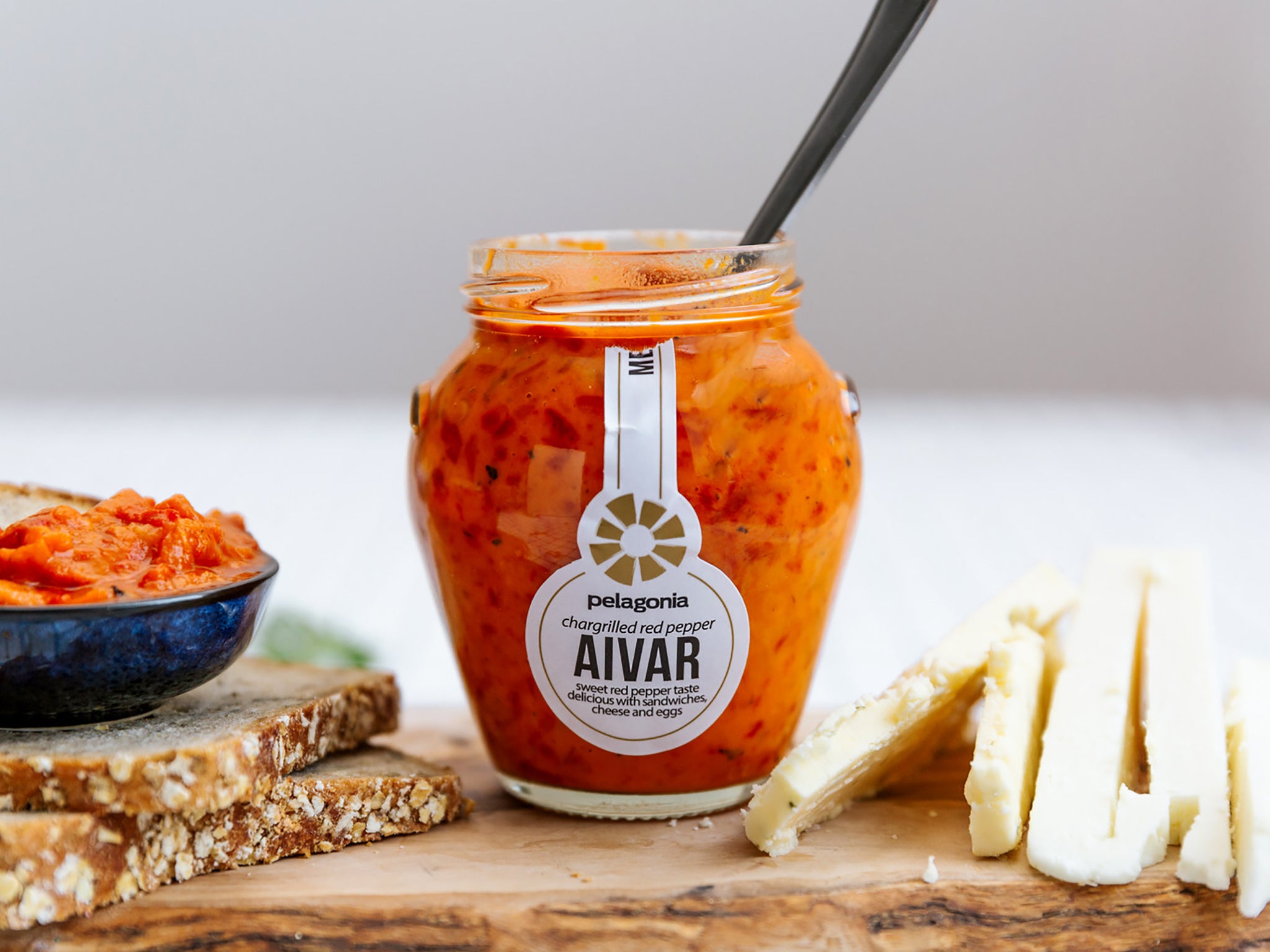
Is it a dip? Is it a cooking sauce? Is it a relish? It’s all of those, and more, and let me state for the record now: it’s absolutely delicious, on its own, swirled into pasta or as a dip for chips. A jar of the stuff lasts less than a week in my household of just two people. It’s a “scooping out a spoonful as you walk past” type of situation. Call me a superfan. That fondness for burnt, blitzed vegetables is how I have found myself whizzing through the pitch black North Macedonian countryside at 1am in search of the real stuff.
It’s also how Evans has found himself as the joint head of a company promoting Macedonian cuisine around the world. When the professional chef first moved here with his wife for a job in 2009, he didn’t expect to fall in love with the land, its people and their food. He tried aivar and thought: “Britain will love this!” We do love things in jars, after all. They never left - now they live in Skopje with their two children. After working for a local cooking TV show for a couple of years, Evans set up Pelagonia in 2011 with his friend Andrej Ivanov, who had experience doing business in the country. They started shipping aivar to the UK in 2012, where it was still relatively unknown and Balkan food was seriously misunderstood. Fast forward a decade, and Pelagonia has not only introduced aivar to hundreds of thousands of people across the UK, it’s also expanded the range to include other types of Macedonian produce, which it now sells in 17 different countries.
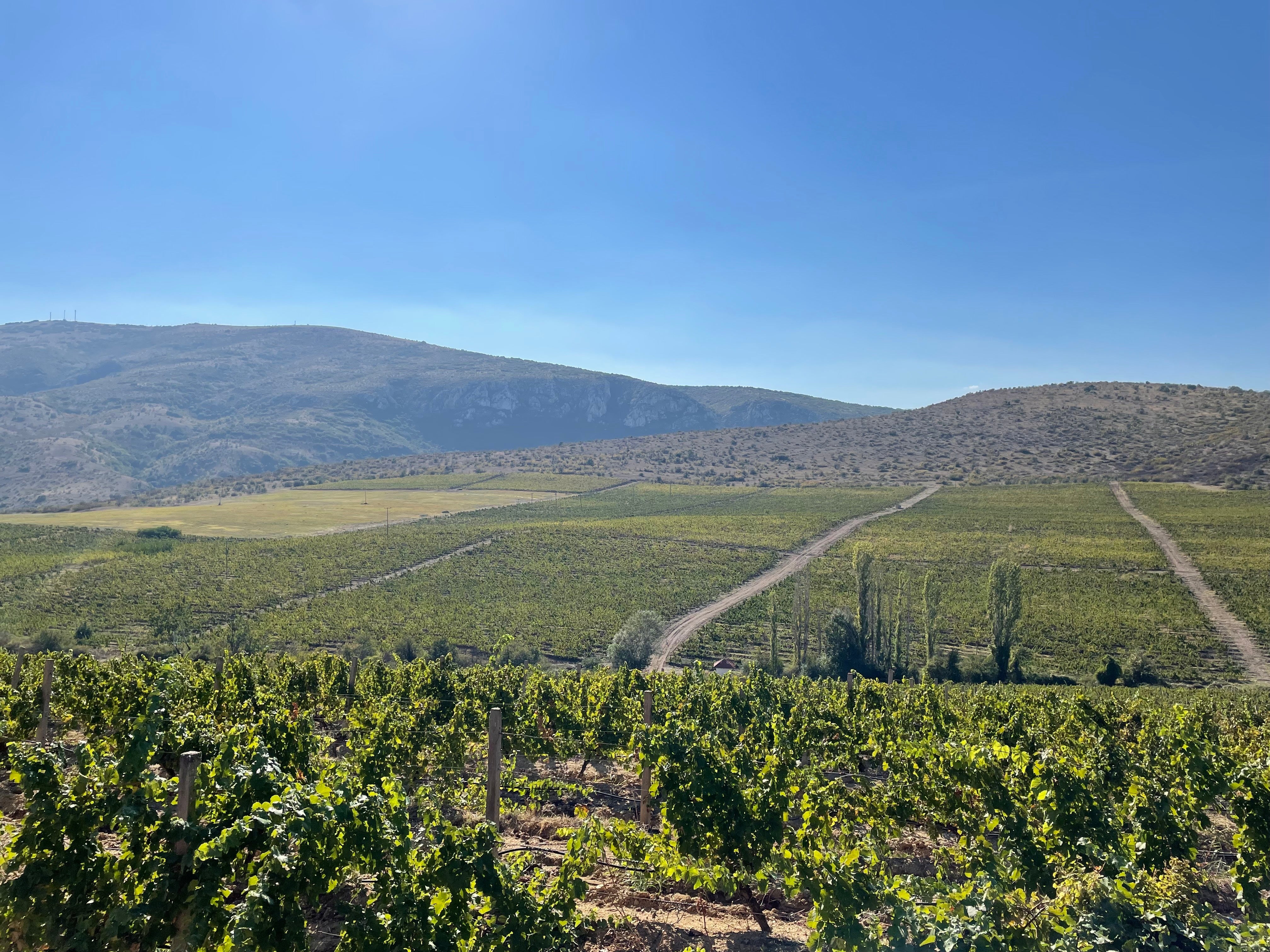
When we wake the next morning at the Lazar Winery, a beautiful little spot tucked away on the banks of the river Crna, I begin to understand why Evans is so enamoured by this country. It is beautiful. I don’t know what I expected given its geopolitical history, but I’m greeted with brilliant sunshine even for October; lush, rolling hills as far as the eye can see, criss-crossed by neat rows of grape vines; wildlife and literal babbling brooks round every bend. It’s this fertile land and reliably good weather almost year-round that has given North Macedonia its rich agricultural heritage. For hundreds of years, tobacco was grown on the Pelagonian plains, considered to be some of the best tobacco leaf in the Balkans. Wine is also big business here, grown on around 55,000 acres of vineyards across the country, most of it red and most of it dry (though I highly recommend the Pearl Frizzante at Lazar). Driving around the region, we pass truck after truck transporting mounds of freshly harvested grapes on their way to a winery nearby. But the red pepper is the undisputed queen of the region, and appears in almost every dish, not just aivar. Most of the produce used in Pelagonia’s products can be found here in this valley, and much of the production is handled by families and groups working in a co-op. We are on our way to meet one.
Up the hill from the winery is Palikura village - to add to the almost unrelenting quaintness, we are held up by a herd of sheep blocking the road. The smell of roasting peppers hits us before we actually see any, although strings of the brilliantly red fruit drying in the sun soon come into view, draped from house to house. We’ve come at prime time for aivar. Families, friends and whole neighbourhoods come together in October to help prepare the peppers, from hand-picking them in the fields that blanket this region, to charring them over a fire until their skins blister and turn black. They’re then peeled while still warm (it’s easier this way, although your fingers will be both pink and black by the end) and minced, often in an old fashioned, hand-turned machine. The cooking part of the process, though, is strictly reserved for the matriarch of the family, and the exact recipe is a closely guarded secret.
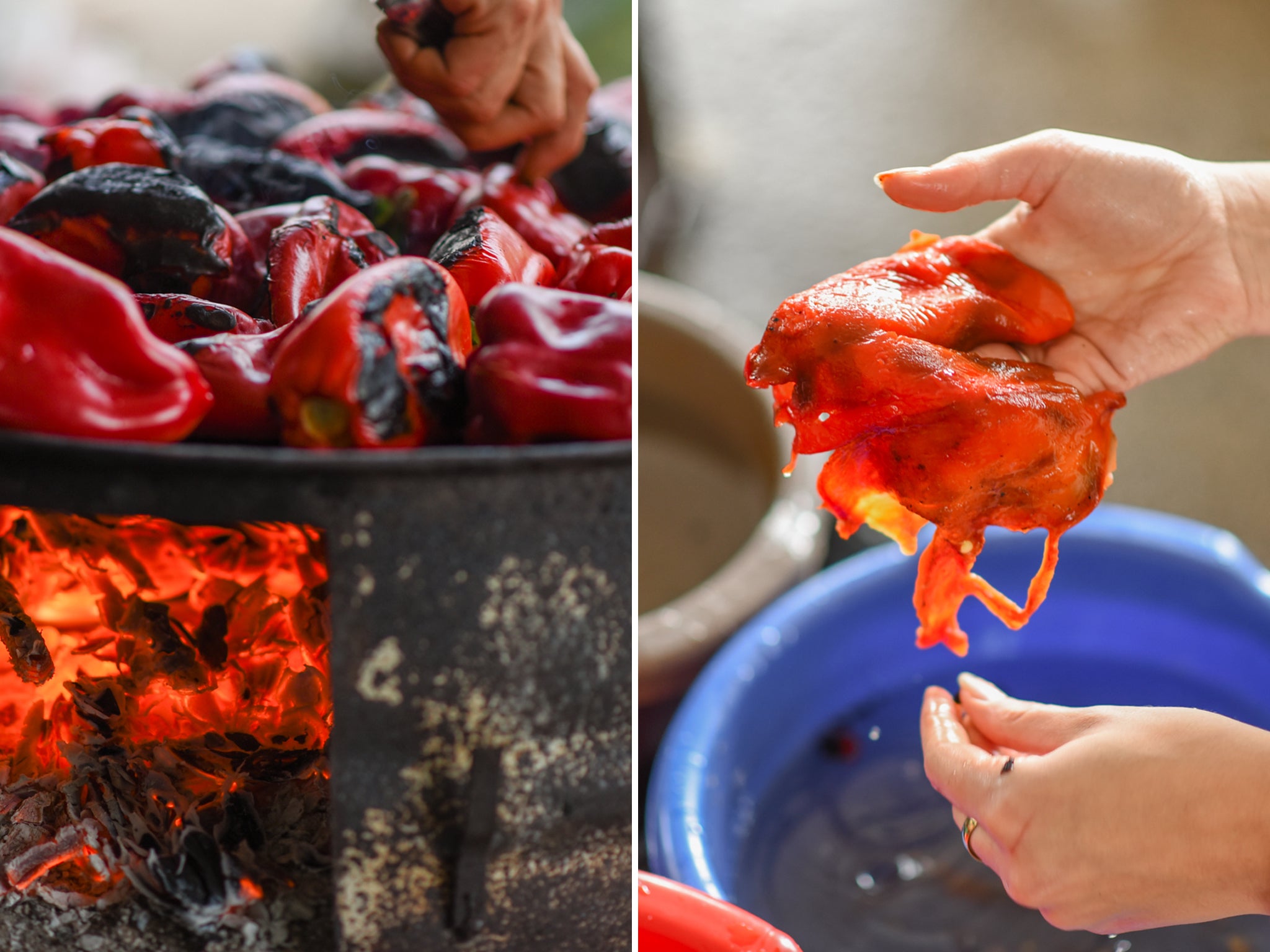
In one such family in Palikura, Baba (Grandma) Zivica is in charge, and is already giving orders to her daughter Milena and 16-year-old grandson Petar. First things first: no Macedonian begins the day without a shot glass of home-brewed rakija, a potent liqueur popular across the Balkans, though I wouldn’t recommend actually throwing it back. When I ask if I should drink it that way, I’m greeted with roundhouse laughter. “No, no, no!” exclaims Milena. “Sip,” she says in broken English, acting it out. The moment the liquid burns down my gullet, I’m thankful she did. Even this early in the morning, it’s strangely satisfying.
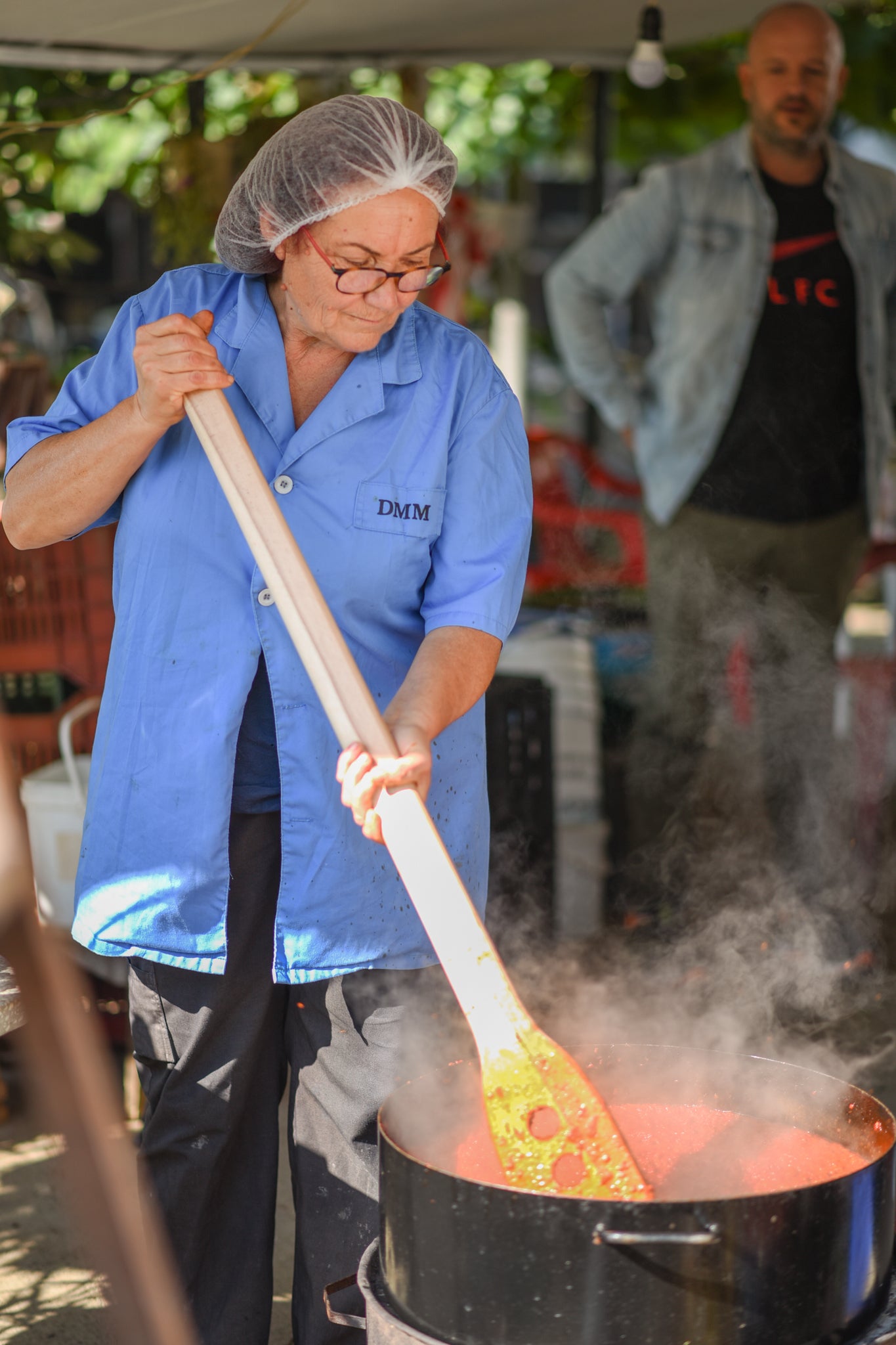
Baba Zivica and her family run quite the operation here in Palikura, though you probably wouldn’t suspect it from the outside looking in. It seems like any other cottage in the village: a modest homestead with a well-tended garden, a canopied outside patio (sheltered by grapes on the vine that the family pick and eat, Milena shows me), and an area out back for the animals. There’s chickens, rabbits, small pheasant-like birds and pigs. In October, this quaint little oasis transforms into a well-oiled aivar making machine. In just one month, they make enough to feed themselves for the rest of the year, as well as even more that they sell to their friends and neighbours who don’t make it themselves. They even ship it to their family in Sweden. The family makes most of their money this way, as well as from selling other fresh produce, and I, for one, am jealous. Even in the most rural parts of the UK, this simple way of life living off the land just isn’t possible any more.
Many younger people in Palikura - as well as across the region and the rest of North Macedonia - have joined the brain drain to more affluent cities and countries in search of education, jobs and opportunity, putting the aivar tradition and this precious way of life at risk. Many of them return at this time of year to help with the aivar - even Baba’s niece Kate, who had been working for a hotel group in Doha, Qatar, is here, her smart officewear a stark contrast to everyone else’s pepper-stained aprons, farmer’s tans and hairnets - but it makes me wonder about the future of this rustic practice.
For now, though, we are put to work, picking, roasting and peeling the peppers the family grows on the land behind the house. The large Balkan pepper is primarily used in aivar, but there are smaller, rounder, spicier varieties here, too: some are added to the aivar to give it a bit of a kick, while others are dried in the sun and used in other delicacies and dishes. There’s a debate across the Balkans about whether aubergines should be added to make it creamier, but the family’s aivar is 100 per cent pepper, and it is certainly tasty enough that way. Baba Zivica is one of the few producers around here who can start the harvest as early as August thanks to a series of polytunnels that house the fruits in the winter. Even when it comes to sealing the aivar into jars, there’s a family technique - Milena and Baba correct me time and time again when my jar has too many air bubbles or the top of the aivar isn’t flat and uniform. Even though they’re twice my age, I find I cannot keep pace with them.
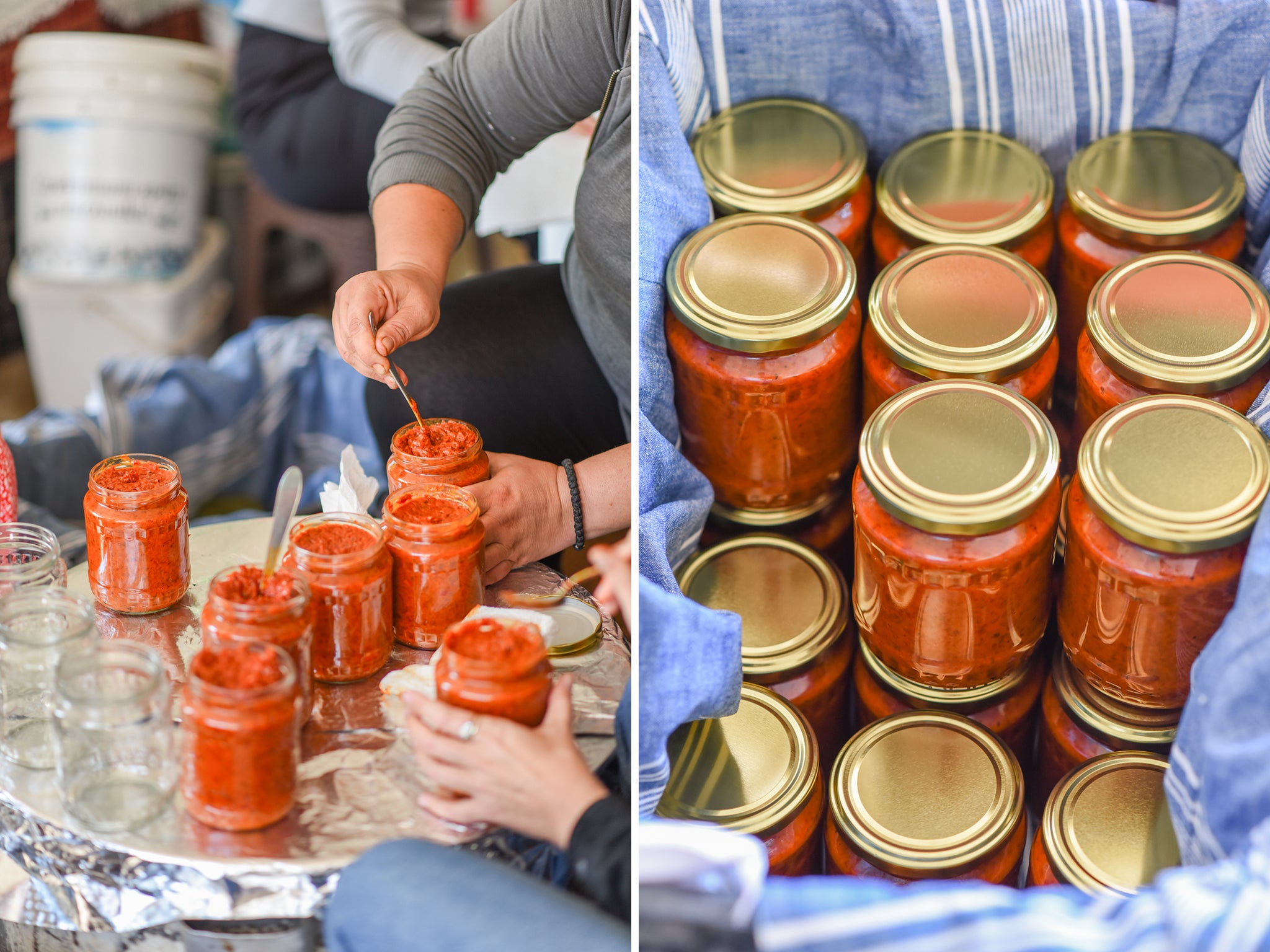
Although she wouldn’t share her exact recipe - a secret little smile always in the corner of her mouth as she stirred the big cauldron-sized pot of stewing peppers for hours on end - she doesn’t add much, just a little oil and salt, which she mostly seems to eyeball, making the aivar naturally plant-based, healthy (although perhaps not in the volume I consume it), organic and sustainable. It’s a process that has been finely tuned over many years and passed down from generation to generation. Even Baba doesn’t know where her recipe comes from - she learnt it from her grandmother, who learnt it from her grandmother, and so on. Google seemingly can’t decide either, with similar relishes of different names appearing all over the Balkans. A Reddit post tells me that the word aivar likely comes from the Farsi word “khâvyâr”, meaning caviar, brought to the Balkans via the Ottoman Empire, or perhaps before then. There was big caviar production along the Danube River until the end of the 19th century, at which point “red caviar”, made from more readily available, affordable and environmentally sustainable red peppers and aubergines, replaced real caviar and at some point evolved into aivar. That’s the general understanding, anyway. What happened between then and now is anyone’s guess, although preservation techniques have historically stemmed from wartime when food was scarce. Yet, with 300 days of sun, allowing for sweeter peppers and therefore better aivar, North Macedonia surely stands a good chance of claiming its invention, if not the title of best aivar in the Balkans. Baba Zivica and her family certainly think so.
At the end of our shift, we enjoy a traditional lunch with the family, scooping out plenty of our freshly made aivar with hunks of bread or mekici, a type of fried dough that’s somewhere between a pancake and a doughnut, and sirenje, homemade sheep’s cheese. It’s all delicious and just what we need, and tastes even better knowing how long we all spent making it. It’s best enjoyed simply like this, platter-style, but the flavour is complex enough that it could be used in pasta sauces or risottos, as a marinade for grilled meats (the smokiness of the charred peppers lending itself well to BBQ fare), or, a personal favourite, baked with eggs. I’m thinking of a riff on the viral TikTok feta pasta. I’m also thinking of eating it straight out of the jar…
This annual ritual of preparing zimnica, the family of relishes and preserves to which aivar belongs, is the perfect example of the slow food movement, which celebrates and protects rich food traditions around the world. Although parts of their production must be industrialised, Pelagonia hopes to protect this way of life, too. The food of North Macedonia, which is well known for its incredible, still mostly organic and sustainable produce, is certainly a far cry from the fast food back home. But after a pandemic that has made us rethink our relationship to what we eat and hyper-aware of where it comes from and its impact on our health and the planet, perhaps there’s never been a better moment for aivar to take the stage.
You’d think by the time I get home, after eating my bodyweight in the aivar I had spent the best part of two days helping to make, and my boyfriend asking why my hair, clothes and breath smell so smoky, I would be sick of the stuff. Alas, a week later, the two jars I took home with me have been licked clean and I’m on the hunt for more. I gifted it to friends and family at Christmas, and recommended it to everyone I could. I also recommended they consider a trip to North Macedonia, which I can now definitively say is the land of breathtaking views, fabulous food and the loveliest of people.
Pelagonia Aivar, including Hot Aivar and other meze, is available at Waitrose and Sainsbury’s stores across the UK, and is soon coming to Co-op. For inspiration and recipes, check out their website, here.
Join our commenting forum
Join thought-provoking conversations, follow other Independent readers and see their replies
Comments